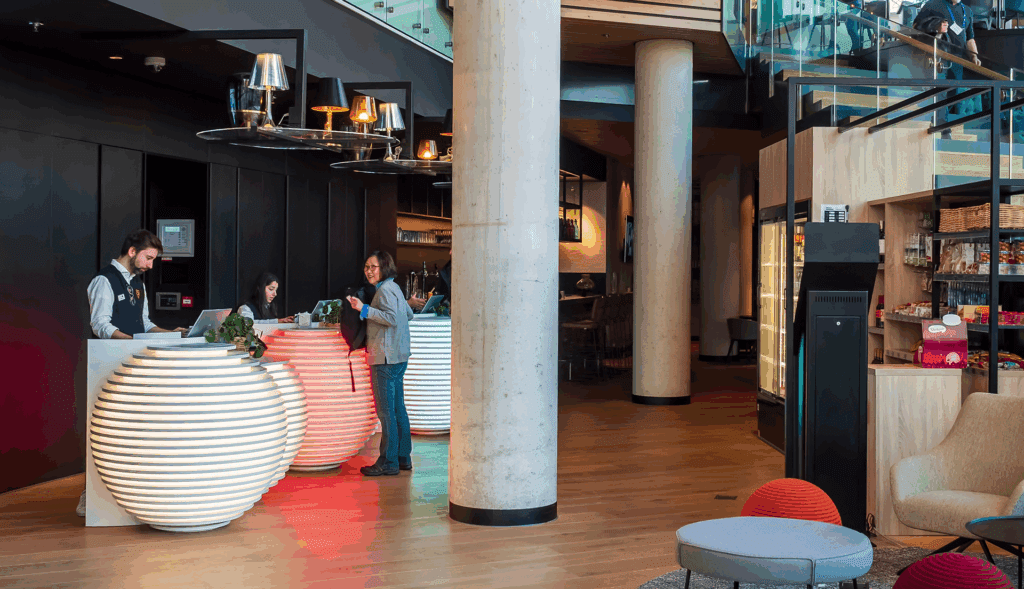Do Boutique Hotels and Vacation Rentals Need Different Access Solutions?

When it comes to managing guest access, boutique hotels and vacation rentals often face similar challenges — but the right solution is rarely one-size-fits-all. Understanding how these property types differ helps owners and managers choose access technology that balances security, efficiency, and guest experience.
Boutique Hotels vs. Vacation Rentals: What’s Different?
While both provide short-term accommodations, boutique hotels and vacation rentals operate in distinct ways:
- Scale and turnover: Boutique hotels often have dozens of rooms with multiple check-ins and check-outs daily. Vacation rentals typically handle fewer turnovers, sometimes managed remotely.
- Staffing: Hotels rely on front desk staff, housekeeping, and maintenance teams. Vacation rentals often depend on automation or third-party vendors.
- Guest expectations: Boutique hotel guests expect concierge-level service, branded touches, and seamless amenities. Vacation rental guests value independence and self-service.
- Amenities: Hotels may need layered access for lobbies, gyms, spas, and staff-only spaces. Many rentals are single units with fewer shared areas.
- Compliance: Hotels face stricter regulations for safety and security, while vacation rentals often have more flexibility but still need reliable safeguards.
What Both Property Types Need
Despite differences, boutique hotels and vacation rentals share several must-have requirements:
- Security and reliability to protect guests and prevent lockouts.
- Ease of use so guests can check in smoothly, even after hours.
- Audit trails to see who accessed what, and when.
- Flexibility and scalability to adapt as properties grow or guest expectations shift.
- Integration with booking or property management software.
- Remote control for managers to handle issues without being on site.
Where Their Needs Diverge
| Focus | Boutique Hotels | Vacation Rentals |
| Guest access | Mobile keys, RFID cards, concierge-managed entry | Self-service PINs, automated code delivery |
| Staff access | Tiered credentials for housekeeping, maintenance, back-of-house | Vendor codes, limited schedules |
| Common areas | Pools, gyms, spas, elevators — all needing layered control | Minimal, unless part of a shared building |
| Aesthetics | Hardware that matches design and brand | Function often outweighs style |
| Redundancy | Fail-safes to avoid disruption across many rooms | Simple backups (spare keys, secondary codes) |
Pitfalls to Avoid
Overly complex systems can overwhelm staff or guests. Relying on outdated tools like lockboxes may create security risks. Other common issues include:
- Lack of integration with booking or property management platforms.
- Inadequate training for staff or instructions for guests.
- Neglecting maintenance tasks like battery replacements.
- Ignoring backup options in case of outages.
Questions to Ask Before Choosing an Access Solution
- How many doors or units do I manage?
- What kind of guest experience do I want to deliver?
- Do I need layered access for common areas?
- How much staff do I have on site?
- What level of automation do I need for check-in/out?
What integrations are most important to me? - How much budget can I allocate to technology vs. operations?
Access Technologies to Consider
- RFID cards or key fobs: Popular in hotels, scalable for multiple doors.
- PIN codes: Common in vacation rentals, especially for self-service arrivals.
- Mobile credentials: Convenient for both hotels and rentals, though adoption depends on guest tech comfort.
- Hybrid solutions: Combining PINs, mobile access, and cards for flexibility.
Looking Ahead
Trends shaping the future of access include mobile-first solutions, sustainability initiatives that reduce reliance on plastic key cards, and integration with energy management systems. Guests increasingly expect digital convenience, whether that’s mobile check-in or remote issue resolution.
The Bottom Line
Boutique hotels often require more complex, layered solutions, while vacation rentals typically prioritize simplicity and automation. Still, both share the same end goal: keeping guests safe, streamlining operations, and delivering a smooth experience.
Evaluating access needs against property size, guest expectations, staff availability, and budget ensures owners and managers choose technology that truly fits.

RemoteLock
Advanced Access Control and More
RemoteLock has been automating access control and improving on-site property operations efficiencies across multiple industries, including vacation rental and multifamily, for more than ten years. As a leading access-centered property operations software platform provider with more than 10,000 customers in 75+ countries, RemoteLock helps property managers enable, control, and automate access and climate control across their portfolio. RemoteLock’s platform saves property managers time and money through the elimination of tasks for onsite staff and helps scale businesses with greater confidence. It is differentiated by its dozens of integrations with applicable hardware and business software systems for an easy-to-use, turn-key solution.
